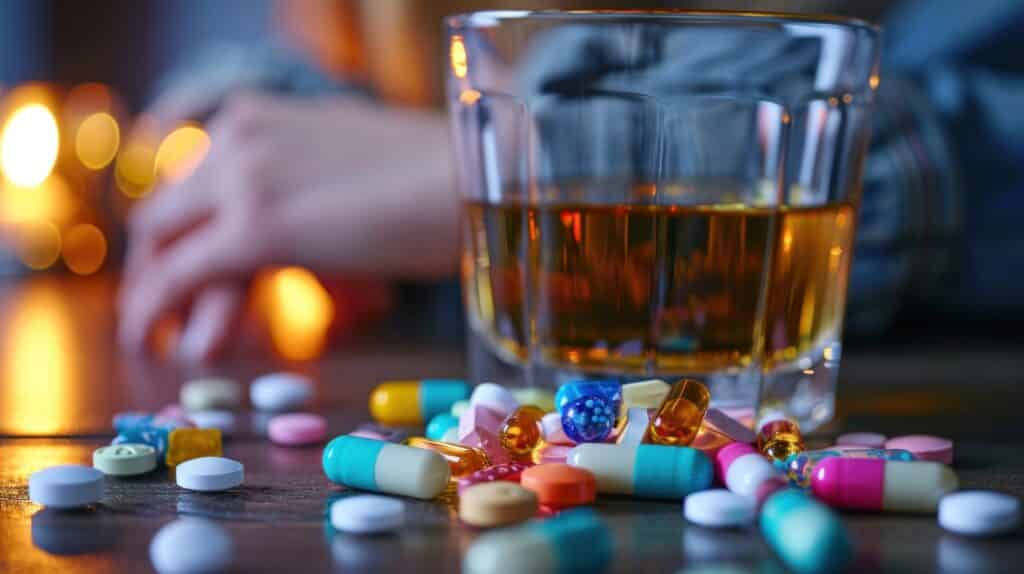There are many positive ways a person can cope with stress, pain, and the symptoms of mental illness, including spending more time in nature, exercising, reaching out to loved ones, and investing new time and energy into art or another meaningful hobby.
However, many people find immediate but temporary relief from their pain and distress through self-medication and alcohol or drug abuse instead. This is a dangerous practice and will likely only worsen a person’s mental, physical, and behavioral health with time.
Fortunately, friends and family can act as a lifeline for those who are self-medicating by first recognizing the warning signs of substance abuse and poor mental health, and then by encouraging their loved one to get professional help.
Here are the top-five warnings signs of self-medication:
1. Social Withdrawal
The more reliant on drugs or alcohol a person becomes, the more their thoughts and feelings turn inwards. This means that a person may avoid their friends and family members and spend more time either alone with their negative feelings or with those who also drink or use drugs.
Unfortunately, this can lead to feelings of loneliness and isolation which may put even more weight on your loved one’s heart, intensifying their substance abuse and inward focus even further.
2. Secretive Or Deceptive Behavior
Untreated mental health disorders and different forms of self-medication may cause secretive or dishonest behavior to develop. For instance, adolescents or young adults may begin spending time with others who also abuse drugs or alcohol and lying about where they are to cover it up.
Other examples include diverting money to pay for substance abuse, hiding drugs or alcohol around one’s home or car, stealing medications or other valuables, disappearing for certain periods of time, and more.
3. Mood Swings
Mixing a mood disorder or other mental health problem with estrangement from friends or family members and the secretiveness and guilt of substance abuse can lead to dramatic and unstable emotional changes.
Loved ones may be completely emotionally closed off one moment, and then touchy or highly reactive about certain subjects the next.
Frequent irritability, outbursts, and moodiness can often lead to defensiveness and strain among one’s family members and friends. But it may also be the only way a hurting loved one has to reach out for help and show others around them how much they are struggling.
4. Lapsed Personal Obligations
When people self-medicate as a coping mechanism for stress or mental health issues, it can become harder and harder to show interest in other activities or to keep up with one’s usual responsibilities and obligations in life.
This can cause flakiness, absenteeism or poor performance at work or in school, problems in one’s family or social relationships, child or pet neglect, and even greater degrees of emotional pain, emptiness, and isolation.
5. Changes In Personal Appearance
Even if a person is able to hide the behavioral effects of substance abuse and co-occurring anxiety, depression, or other mental health conditions, they may still show physical signs of deterioration.
Mental illness, alcohol, stimulant drugs, opioids, and other illicit and prescription drugs can all interfere with sleep and nutrition, leading to outward signs and symptoms including:
- dehydration
- chronic fatigue
- looking unusually pale
- substantial weight gain or loss
- sunken eyes
- bloodshot eyes
- premature aging
- poor posture
- obvious changes in oral hygiene
- bruises, scars, or open sores on skin
- unkempt hair and/or facial hair
- wearing unwashed clothing
Treating Co-Occurring Disorders
Addiction treatment professionals are well aware of the dangers of untreated mental health symptoms and self-medication as they relate to substance use disorders and addiction treatment.
When a co-occurring disorder is diagnosed, providers will generally recommend dual diagnosis treatment programs that offer treatment for both an individual’s substance abuse and for co-occurring mental disorders including:
- clinical depression
- panic or anxiety disorders
- post-traumatic stress disorder (PTSD)
- obsessive-compulsive disorder (OCD)
- attention-deficit/hyperactivity disorder (ADHD)
- bipolar disorder/manic-depressive disorder
- borderline personality disorder
- schizophrenia
- suicidal ideation
- and others
Treatment may include a combination of proven psychotherapies like cognitive behavioral therapy, dialectical therapy, or exposure therapy, as well as FDA-approved prescription medications like antidepressants, stimulants, antipsychotics, methadone, buprenorphine, naltrexone, and others.
Northeast Addictions Treatment Center
Don’t underestimate the dangers of self-medication and habitual substance abuse.
If you or someone you love is using drugs or alcohol to cope with boredom, stress, anger, grief, depression, anxiety, or some other negative emotion, please reach out and seek professional mental or behavioral help.
At Northeast Addictions Treatment Center, our compassionate and expert team of clinicians, therapists, and medical professionals provide intensive outpatient and dual-diagnosis treatment for substance use disorders and major co-occurring mental health disorders.
Call now to learn more or enroll in a treatment program today.
People Also Read:
- What are the real risks of Antidepressants
- Is Alcohol A Depressant?
- 5 Causes Of Drug Addiction/Substance Use Disorder
Sources:
- American Psychological Association (APA) – Warning Signs of Mental Illness
- Depression and Anxiety – Self‐medication with alcohol or drugs for mood and anxiety disorders: A narrative review of the epidemiological literature
- National Institute on Drug Abuse (NIDA) – What Are the Signs of Having a Problem With Drugs?

